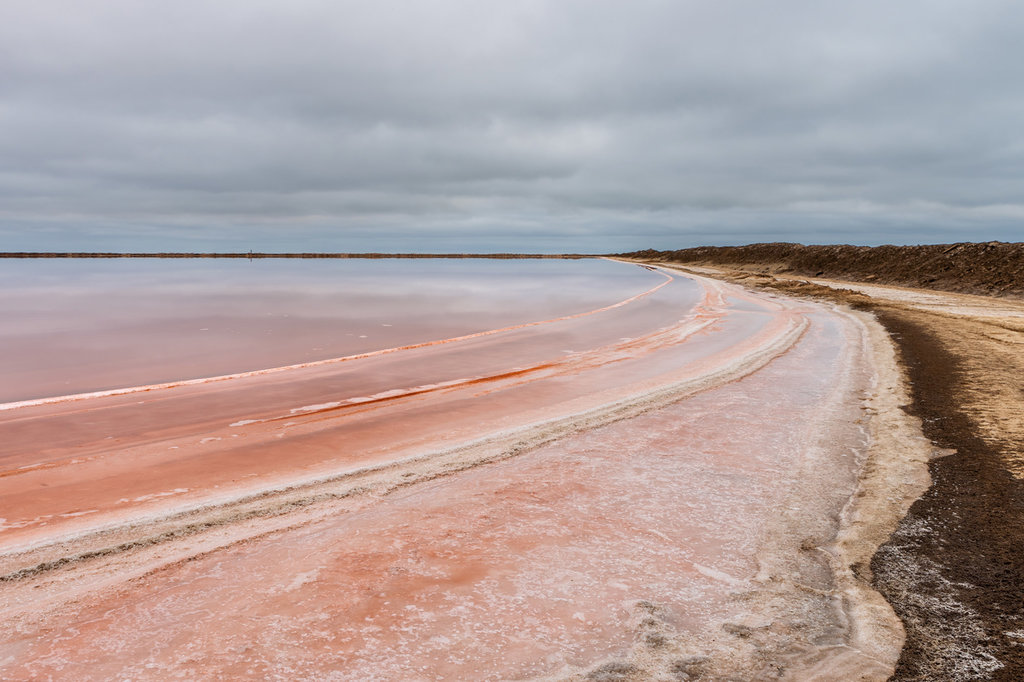Interview
Ethics, politics and lithium mining: in conversation with Zayn Kaylan of Infinity Stone
As the world’s attention shifts to lithium, how can its miners ensure their work is sustainable and ethical? Kit Million Ross speaks to Zayn Kaylan of Infinity Stone.

Zayn Kalyan, CEO of Infinity Stone Ventures
Lithium is a critical component in the production of electric vehicles (EVs) and renewable energy storage, making it an essential resource for a world transitioning away from fossil fuels. However, the ethics and geopolitics of lithium mining have been increasingly scrutinised in recent years.
In the rush to cash in on the soaring price of lithium, several companies have been involved in concerning mining practices across the globe; some are ethically and environmentally dubious, while others are blatantly illegal. Concerns around water scarcity, pollution and the displacement of indigenous communities are increasingly being discussed; meanwhile, reports of exploitation and poor safety practices are raising questions about labour conditions for lithium miners.
Discussing Iran’s recent discovery of a massive lithium deposit with Zayn Kalyan, CEO of Infinity Stone Ventures, reveals a unique perspective on the topic. Infinity Stone works to discover deposits of battery metals, taking potential mines through the early development stages before selling the projects onto other companies to develop and mine the area. While most of Infinity’s projects are in North America, Zayn has seen the impact of questionable mining practices by other companies across the globe, as attention on the ethics of lithium mining only grows.
Kit Million Ross: Iran recently announced it had made a major discovery of lithium; what could this mean for the future of the electric vehicle market?
Zayn Kaylan: Lithium is probably one of the hottest commodities right now, driven by the demand that's from the EV market and the energy transition from fossil fuels to electrification. With that, there’s a big focus on the amount of lithium that's going to be needed to build all these batteries.
With the discovery in Iran, there's a lot of geopolitical factors associated with the lithium supply chain. China has a de facto monopoly on the lithium battery manufacturing space because over the past 25 years, they've built this massive capacity. Beyond that, in Africa, there's lithium deposits that China has been very active in exploiting. These small Chinese companies that are mining lithium in Africa are not the most ethical companies by any stretch; they're effectively just pulling rock off the top of the ground and shipping it to China in a very disruptive manner.
Sub-Saharan Africa has some of the richest lithium deposits in the world. In the Democratic Republic of Congo (DRC) specifically, you're seeing very high-grade lithium, and it's very environmentally-friendly to mine. But there are ethical concerns with how you're exploiting the resources of that country.
China, the US and Western countries have seen this opportunity and are now moving back into Sub-Saharan Africa. Over the past ten, 15 years, they've left it alone, and China's been able to capitalise on that. But now you're seeing North American countries - especially the US - going back into Sub-Saharan Africa and trying to build a more ethical relationship with the countries to be able to develop their natural resources.
With what Iran's found, it’ll be interesting to see how they build relationships with China and other parts of the world that are going to start really looking at building a strong supply chain for lithium.
Kit Million Ross: How have you tried to set up more ethically and sustainable operations?
Zayn Kaylan: When we develop mines, we're building full-on mines that have safety standards. They're not only built for safety, they're built for environmental concerns too. There are also social concerns, especially in Sub-Saharan Africa: you want to be paying the locals fairly, you want to be building something that's giving back to the community.
But what a lot of small Chinese companies are doing is just showing up, taking explosives, blowing up a bunch of rock, throwing it in the back of a truck and leaving. They're not considering where the water is going. They're not considering contamination in the communities; there's none of that. They're just there to take away the rock and pillage it and then ship it back to China.
I don't even call it mining. It’s not really what we consider mining. It's exploiting really what it is. It’s a very primitive version of mining. And even in these countries, it's illegal.

Salt flats in Namibia. Credit: Matt T Jackson via Shutterstock
Kit Million Ross: So it's blatant? They're going against legal regulations rather than just exploiting loopholes?
Zayn Kaylan: Exactly. If you look at lithium mining in Nigeria, that's a big concern. The north part of Nigeria has no oil, no fossil fuels. Northern Nigeria has typically been very poor because of that. But there's considerable lithium, and they're finding all these massive lithium deposits.
Now you're starting to see a lot more illegal mining in northern Nigeria - that's coming from small Chinese companies going in and illegally mining. Beyond that, you're seeing artisanal mining, which is mining from the locals. Local communities are taking the rocks off surface, then selling them to small Chinese companies that ship them back to China.
It’s interesting because the artisanal miners are seeing this big opportunity. They're making money, but they're probably not being treated fairly by any standard, then the Chinese mining companies are taking advantage of this. It's an interesting situation for sure.
Kit Million Ross: How do you think the global mining industry can do better, particularly regarding lithium?
Zayn Kaylan: In Sub-Saharan Africa there’s been 200, 300 years of colonialism that has exploited that part of the world for minerals. That never really ended. It just changed and switched hands. Colonialism never really went away, but now it’s not countries doing it, it’s companies doing it. Many large mining companies are doing it.
It's a complex issue; DRC, as an example, is probably one of the wealthiest countries in the world. With its lithium and copper reserves, it could be richer than Saudi Arabia as a source for electric in a world where electrification is bigger than oil.
But the issue is that you have such a corrupt government there and such a corrupt political structure that it's not feasible for the people to see the benefits of that.
I think where I'm going with that is that the mining industry can do a lot. Many of the larger mining companies across the world are conscious of these concerns, especially with the environmental, social and governance movement, and they want to remain ethical. But it's hard to get around the fact that a country like DRC has such a wealth of minerals, and the only way to get to those deposits is to go through a corrupt political structure.
It’s kind of the chicken and the egg because by mining them, these companies are supporting that structure. It's a hard balance to figure out how to get through that.